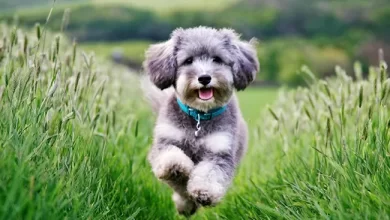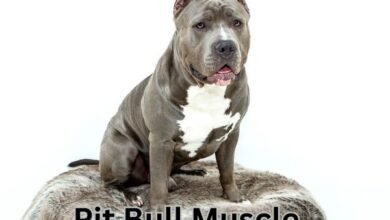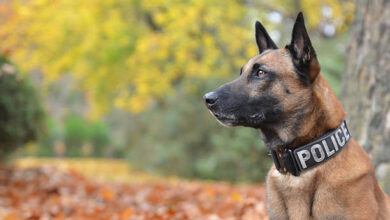
When people think of the Golden Retriever, images of a friendly, loyal, and playful companion often come to mind—this breed is famous for its gentle nature and love of people, making it a top choice for families everywhere. But did you know that a Golden Retriever’s happiness and confidence depend heavily on something called socialization? Socialization is more than just meeting new people or dogs; it’s about helping your Golden Retriever feel comfortable in a variety of situations, from busy parks and noisy streets to quiet evenings at home.
In this guide, you’ll discover expert tips, step-by-step advice, and answers to the most common questions about Golden Retriever socialization. Whether you’re a first-time dog parent or a seasoned pet owner, you’ll find actionable strategies to help your Golden Retriever thrive in any environment. Let’s explore how you can give your furry friend the best start in life, one positive experience at a time!
Why Nutrition Matters for Golden Retrievers
Golden Retrievers are friendly, active, and loving dogs. To keep them healthy and happy, they need the right food. Good nutrition helps them grow strong, stay active, and avoid health problems.
Unique Dietary Needs of Golden Retrievers
Golden Retrievers have special needs because of their size, energy, and health risks.
- Large Size: They are big dogs and need enough food to support their bones and muscles.
- Active Lifestyle: Golden Retrievers love to run, play, and exercise. They need food that gives them plenty of energy.
- Health Risks: This breed can have joint problems, allergies, and sometimes gain weight easily. They need food that helps protect their joints and keeps their weight healthy.
What Makes a Balanced Diet for Golden Retrievers?
A balanced diet means your dog gets all the important nutrients in the right amounts.
- Protein: Builds strong muscles and repairs the body. Good sources are chicken, beef, fish, and eggs.
- Fats: Give energy and keep the coat shiny. Healthy fats like omega-3 and omega-6 are best.
- Carbohydrates: Provide energy and help with digestion. Good carbs come from vegetables and some grains like oats or sweet potatoes.
- Vitamins and Minerals: Help with bone strength, immune system, and skin health. Important ones are calcium, vitamin A, vitamin E, and zinc.
- Fibre: Keeps the stomach healthy and helps with digestion. Fibre comes from vegetables and fruits.
- Water: Always make sure your dog has clean water. Water helps every part of their body work well.
Benefits of a Balanced Diet
Feeding your Golden Retriever the right food brings many benefits:
- Healthy Coat: Good fats and vitamins make their fur soft and shiny.
- Strong Muscles: Enough protein helps build and repair muscles, keeping your dog strong and active.
- Disease Prevention: A balanced diet can help prevent joint problems, obesity, and other health issues common in this breed.
- Better Digestion: Fibre and water keep their stomach working well and reduce tummy troubles.
- More Energy: The right mix of nutrients helps your dog stay playful and happy every day.
Simple Tips for Feeding Golden Retrievers
- Choose high-quality dog food with real meat and healthy fats.
- Avoid giving too many treats or table scraps, as this can lead to weight gain.
- Feed your dog smaller meals two or three times a day instead of one big meal.
- Watch your dog’s weight and adjust food portions as needed.
- Always provide fresh, clean water.
Golden Retrievers need good nutrition to live long, healthy lives. By giving them balanced meals with the right nutrients, you help them stay strong, active, and happy. Good food is the key to a healthy Golden Retriever.
7 Foods to Include in Your Golden Retriever’s Diet
Golden Retrievers are friendly, active dogs. They need the right food to stay healthy and happy. Here are seven important foods to include in their diet.
1. High-Quality Animal Protein
- Protein is the most important part of a Golden Retriever’s diet.
- It helps build strong muscles and gives energy.
- Good sources of protein are chicken, beef, turkey, lamb, and fish like salmon and tuna.
- Puppies need more protein than adult dogs to help them grow.
2. Organ Meats
- Organ meats are very nutritious.
- Examples are liver, kidney, and heart.
- They give your dog important vitamins and minerals, like vitamin A, iron, and B vitamins.
- Feed organ meats in small amounts, as they are very rich.
3. Healthy Fats
- Fats help keep your dog’s skin and coat shiny.
- Healthy fats also give energy and help the brain work well.
- Good sources are fish oil and flaxseed, which have omega-3 and omega-6 fatty acids.
- These fats also help with joint health and reduce swelling.
4. Vegetables
- Vegetables are full of fiber, vitamins, and minerals.
- Good choices are carrots, peas, broccoli, zucchini, and sweet potatoes.
- Fiber helps with digestion and keeps your dog’s tummy healthy.
- Give vegetables cooked or raw, but always in small pieces.
5. Fruits (in Moderation)
- Fruits can be a tasty treat and are full of antioxidants.
- Try blueberries, apples (without seeds), strawberries, and cooked butternut squash.
- Fruits help your dog’s digestion and boost their immune system.
- Only give fruits in small amounts, as too much sugar is not good for dogs.
6. Whole Grains (if Tolerated)
- Some dogs do well with grains, while others do not.
- Brown rice and oatmeal are good grains that give energy and help with digestion.
- Grains also have fiber, which keeps your dog’s gut healthy.
7. Fresh Water
- Always give your Golden Retriever clean, fresh water.
- Water is needed for every part of your dog’s body, including digestion and cooling down after exercise.
- Make sure your dog’s water bowl is never empty.
Tips for Feeding Your Golden Retriever
- Give a mix of these foods for a balanced diet.
- Adjust the amount of food based on your dog’s age and activity level.
- Introduce new foods slowly to avoid tummy upset.
- Talk to your vet if you are unsure about any food.
A healthy diet helps your Golden Retriever stay active, happy, and live a long life.
7 Foods to Avoid for Golden Retrievers
Golden Retrievers are friendly, loving dogs that are part of many families. They love to eat and will often try to get a taste of whatever you are having. But some foods are very dangerous for them. Here are seven foods you should never give your Golden Retriever.
1. Grapes and Raisins
- Grapes and raisins are very toxic to dogs.
- Even a small amount can make your Golden Retriever very sick.
- Eating grapes or raisins can cause kidney failure, which means the kidneys stop working properly.
- Signs of poisoning include vomiting, tiredness, and not wanting to eat.
2. Chocolate
- Chocolate is poisonous to all dogs, including Golden Retrievers.
- It contains a substance called theobromine, which dogs cannot handle.
- Eating chocolate can cause vomiting, diarrhea, shaking, and even death.
- Dark chocolate and baking chocolate are the most dangerous.
3. Onions, Garlic, Leeks, and Chives
- These vegetables are part of the allium family and are harmful to dogs.
- Eating them can damage your dog’s red blood cells, leading to anemia (which means not enough healthy red blood cells).
- Symptoms may include weakness, vomiting, and pale gums.
- Sometimes, the signs do not show up right away.
4. Macadamia Nuts and Almonds
- Macadamia nuts are very toxic to dogs and can make them very sick.
- Almonds are not as toxic, but they are hard to digest and can cause stomach problems or pancreatitis (inflammation of the pancreas).
- Signs of poisoning include vomiting, weakness, and trouble walking.
5. Raw or Green Potatoes and Tomatoes
- Raw or green potatoes and green tomatoes contain a chemical called solanine, which is harmful to dogs.
- Eating these can cause stomach pain, confusion, and a slow heart rate.
- Only cooked potatoes (with no butter or salt) are safe in small amounts.
6. Xylitol (found in sugar-free products)
- Xylitol is a sweetener found in sugar-free gum, candy, and some peanut butters.
- It is very dangerous for dogs and can cause a quick drop in blood sugar.
- This can lead to weakness, seizures, and even death.
- Always check labels before giving your dog any human food.
7. Cooked Bone
- Cooked bones can easily break into sharp pieces.
- These pieces can hurt your dog’s mouth, throat, or stomach, and may cause a blockage or tear inside.
- Never give your Golden Retriever cooked bones from chicken, beef, or any other animal.
Quick Tips for Keeping Your Golden Retriever Safe
- Always keep harmful foods out of reach.
- If your dog eats something dangerous, call your vet right away.
- Feed your Golden Retriever food made for dogs, and only give safe treats.
Keeping your Golden Retriever healthy and happy means knowing what foods to avoid. If you are ever unsure about a food, it is best not to give it to your dog and ask your vet for advice.
Feeding Guidelines for Golden Retrievers
Feeding your Golden Retriever the right way helps them stay happy and healthy. Their food needs change as they grow from puppy to adult and then to senior. Here’s a simple guide to help you feed your Golden Retriever at every stage of life.
Feeding Puppies
How Often to Feed:
- Puppies need to eat more often because they are growing fast.
- Feed your Golden Retriever puppy 3 to 4 small meals each day until they are about 6 months old.
- After 6 months, you can switch to 2 meals a day.
How Much to Feed:
- At 2 months: about 1 1⁄2 cups of puppy food daily, split into 3-4 meals1.
- At 3 months: about 2 cups daily, split into 3-4 meals.
- At 4 months: about 2 1⁄2 cups daily, split into 3 meals.
- At 5-6 months: about 3 cups daily, split into 3 meals.
- From 6-12 months: 3-4 1⁄2 cups daily, split into 2 meals1.
Tips:
- Use a measuring cup for accuracy.
- Watch your puppy’s weight. If they look too thin or too chunky, adjust the amount a little.
- Always give fresh water.
Feeding Adult Golden Retrievers
How Often to Feed:
- Adult Goldens do well with 2 meals a day—one in the morning and one in the evening.
How Much to Feed:
- Most adult Golden Retrievers need about 2 to 4 cups of food daily, depending on their size, gender, and activity.
- Females: 2 to 2½ cups per day.
- Males: 3 to 3½ cups per day.
- Very active Goldens may need up to 4 cups per day.
Tips:
- If your dog is very active, they may need a little more food.
- If your dog is not very active or is gaining weight, feed a little less.
- Always check the feeding guide on your dog food bag and ask your vet if you’re unsure.
Feeding Senior Golden Retrievers
How Often to Feed:
- Senior Goldens (about 8 years and older) still do well with 2 meals a day.
- Some may benefit from smaller meals 2-4 times a day if they have trouble digesting big meals.
How Much to Feed:
- Senior Goldens usually need about 20% less food than adults, or around 2 1⁄2 to 3 cups a day, depending on their size and activity.
- If your senior dog is losing weight or is less active, adjust the amount as needed.
Tips:
- Senior dog food is often lower in calories and has nutrients for joint and brain health.
- Always talk to your vet about the best food for your older dog.
Adjusting Portions for Activity and Weight
- Every Golden Retriever is different. Dogs who run and play a lot need more food than those who sleep most of the day.
- If your Golden is gaining weight, cut back the food a little.
- If they are losing weight or seem hungry, give a little more.
- Always watch their body shape and energy. You should be able to feel their ribs but not see them.
Transitioning Between Puppy, Adult, and Senior Food
When to Switch:
- Switch from puppy to adult food when your Golden is 12 to 18 months old.
- Switch to senior food around 8 years old, or as advised by your vet.
How to Switch:
- Change foods slowly over 7 to 10 days to avoid stomach upset.
- Mix a small amount of the new food with the old food at first.
- Each day, add more new food and less old food.
- Watch for signs of stomach trouble, like diarrhea or not wanting to eat. If this happens, slow down the switch or talk to your vet.
Feeding your Golden Retriever the right way at every stage helps them stay healthy and happy for years to come.
Common Feeding Mistakes to Avoid for Golden Retrievers
Golden Retrievers are friendly, loving dogs. They need good food to stay healthy and happy. But sometimes, owners make mistakes when feeding them. Here are some common mistakes and how to avoid them.
Overfeeding and Obesity Risks
It is easy to give your Golden Retriever too much food. They often act hungry, even when they are not. Overfeeding can cause many problems:
- Weight gain and obesity
- Heart disease
- Diabetes
- Joint pain and arthritis
- Shorter life span
- Trouble moving around
Overweight dogs also get tired faster and may not want to play as much. To help your dog stay at a healthy weight:
- Follow the feeding instructions on the dog food bag or ask your vet for advice
- Measure your dog’s food for each meal
- Do not give extra food, even if your dog begs or looks cute
- Adjust the amount if your dog is gaining or losing weight
Feeding Table Scraps or Inappropriate Treats
Giving your Golden Retriever table scraps or human food is a common mistake. Many foods that are safe for people can be harmful to dogs. Problems with feeding table scraps include:
- Upset stomach, vomiting, or diarrhea
- Dangerous foods like chocolate, onions, grapes, and garlic can be toxic
- Weight gain from extra calories
- Bad habits, like begging at the table or whining during meals
- Unbalanced diet, which can lead to health problems
Instead of table scraps, give your dog healthy treats made for dogs. If you want to give a special treat, choose plain cooked chicken or carrots, but only in small amounts.
Not Adjusting Diet for Age, Health, or Activity Changes
Golden Retrievers need different food as they grow and change. Puppies, adults, and senior dogs all have different needs. Mistakes happen when owners do not change the food as their dog gets older or less active.
- Puppies need more calories and nutrients to grow
- Adult dogs need food that matches their activity level
- Older dogs need fewer calories because they move less
- Dogs with health problems may need special diets
If your Golden Retriever becomes less active, gains weight, or gets older, talk to your vet about changing their food. Senior dogs also need food that is easy to digest and gentle on their stomach.
Quick Tips to Avoid Feeding Mistakes
- Stick to a regular feeding schedule
- Use a measuring cup for each meal
- Avoid giving human food
- Watch your dog’s weight and body shape
- Visit your vet for advice on feeding and nutrition
By avoiding these common mistakes, you can help your Golden Retriever live a long, healthy, and happy life.
Golden Retriever: A Friendly and Loyal Companion
Golden Retrievers are one of the most popular dog breeds in the world. They are known for their gentle nature, intelligence, and beautiful golden coats. These dogs make wonderful family pets and are loved for their playful and friendly attitude.
Key Facts About Golden Retrievers
- Medium-sized dogs, usually weighing 55–75 pounds
- Famous for their shiny, golden fur and friendly faces.
- Come from Scotland and were first bred to help hunters retrieve birds from water.
- Known for being gentle, patient, and loving with children and adults.
- Very smart and easy to train, making them great service or therapy dogs.
- Need lots of exercise and playtime to stay happy and healthy.
Why a Good Diet Matters
A balanced diet is very important for Golden Retrievers. The right food helps them stay strong, keeps their fur shiny, and supports their active lifestyle.
What Should Golden Retrievers Eat?
- High-quality dog food with real meat as the main ingredient.
- Foods rich in protein to help build strong muscles
- Moderate amounts of healthy fats for energy and a shiny coat.
- Low in fillers like corn or soy, which do not add much nutrition.
- Some healthy treats, like small pieces of carrot or apple, are okay in moderation.
Conclusion
A balanced, breed-appropriate diet is key to keeping your Golden Retriever happy and healthy. The right food supports their active lifestyle, shiny coat, and long life. Always talk to your veterinarian for advice about what and how much to feed your Golden Retriever. They can help you choose the best diet for your dog’s age, weight, and health needs.
Do you have a Golden Retriever? What do you feed them? If you have questions or want to share your own tips, please leave a comment below! Your stories and questions help others care for their furry friends, too.
FAQ
How much should I feed my Golden Retriever?
Adult Golden Retrievers usually need 2 to 3 cups of high-quality dog food daily, split into two meals. The exact amount depends on their age, size, and activity level. Always follow your vet’s advice or the food label for guidance.
Can Golden Retrievers eat homemade food?
Yes, Golden Retrievers can eat homemade food if it’s balanced. Include lean meats, vegetables, and rice. Avoid foods like onions, garlic, and chocolate. It’s best to talk to your vet or a pet nutritionist before switching to homemade meals.
What treats are safe for Golden Retrievers?
Safe treats include small bits of cooked chicken, carrots, apples (no seeds), and store-bought dog treats with no added sugar or salt. Avoid chocolate, grapes, and anything with xylitol. Always give treats in moderation to prevent weight gain.
How do I transition my Golden Retriever to a new food?
Slowly mix the new food with the old over 7 days. Start with 25% new food, then increase to 50%, 75%, and finally 100%. This helps your Golden Retriever avoid stomach upset and adjust to the new diet safely.
What are signs of food allergies or intolerances in Golden Retrievers?
Common signs include itchy skin, red ears, upset stomach, diarrhea, and constant licking or scratching. If your Golden Retriever shows these symptoms, talk to your vet. They may need a special diet or allergy testing.



